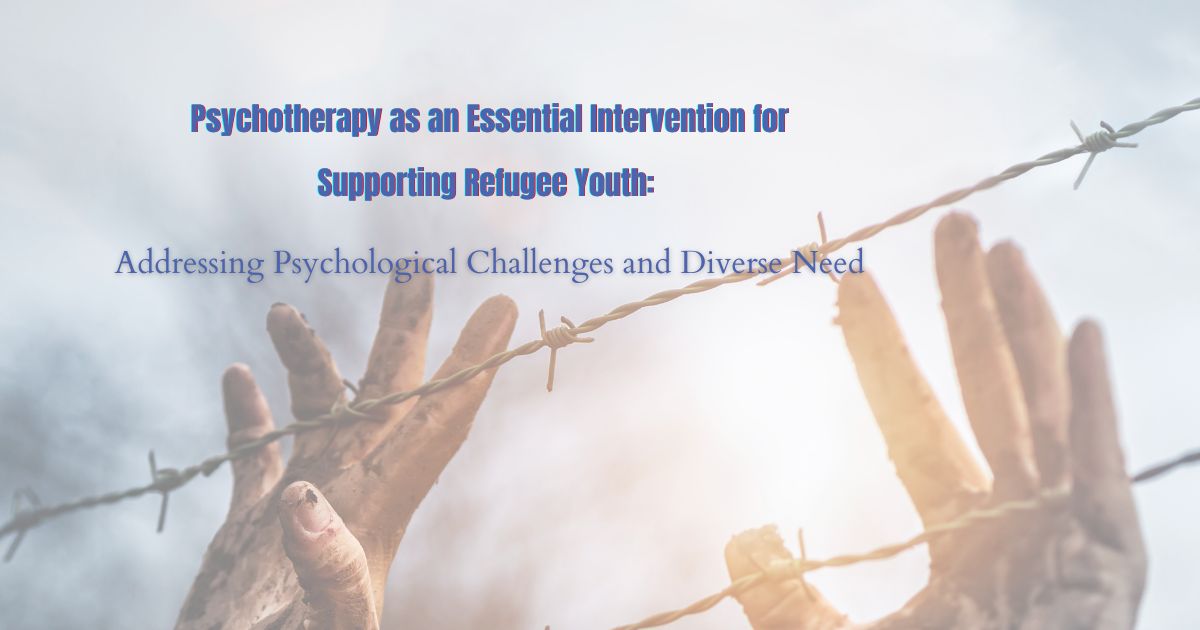
Supporting Refugee Youth According to a study by the World Health Organization (WHO), refugee youth who have experienced oppression and violence in their home countries often face significant psychological challenges upon arriving in their host countries. These challenges can include symptoms of depression, anxiety, and post-traumatic stress disorder (PTSD) (WHO, 2018). To support these youth in their integration process, it is important to provide them with well-informed interventions, including psychotherapy, that can help them address both their previous experiences and ongoing challenges in their new environment.
The needs of refugee youth are complex and varied. Some may arrive with chronic medical conditions that require a team of healthcare professionals to address, while others may struggle with academic integration due to gaps in their educational background. This lack of educational support can leave them feeling inadequate and vulnerable to bullying. Additionally, some refugee youth may arrive with developmental or intellectual disabilities that require specialized services, which may not be readily available in their new environment. In such situations, psychotherapy can provide essential support to both the youth and their families.
Supporting Refugee Youth
Effective psychotherapy sessions require a culture-informed approach that acknowledges the language and cultural backgrounds of the refugee youth. Such an approach can help them to legitimize their previous and ongoing painful emotions and understand their ongoing struggles, especially in cases of chronic illness or disability. A contextual assessment of their educational, medical, and psychological needs is necessary to provide comprehensive care. A biopsychosocial perspective can be used to conceptualize their current issues, considering their biological, psychological, and social factors.
In addition to these challenges, separation from family members can also significantly affect the mental health and emotional well-being of refugee youth. The need to deal with the lack of family support or the worry of family members back home can become a legitimate need, and psychotherapy can help them address these concerns and feelings of isolation.
In summary, access to psychotherapy services is an essential component of supportive and integrative care for refugee youth. Providing comprehensive support that addresses the diverse needs of these youth is crucial for their successful integration into their new communities. A culture-informed approach to psychotherapy that considers their unique needs and circumstances is necessary to support their emotional resilience and facilitate their adaptation to their new environment.
Contact us and one of our team members will get back to you within 48 hours.
111 Waterloo St unit 406 London ON N6B2M4
mail@resiliencec.com
Phone + 1 (226) 374-4457
Cell + 1(226) 210-4170
Fax + 1 (226) 916-0283
Related Posts
Stress: wrestling with shadows
The state of both physiological and psychological reactions to stressful...
Types of Cyberbullying
Technology can be a boon or a bane. Setting up limitations and restrictions on...


